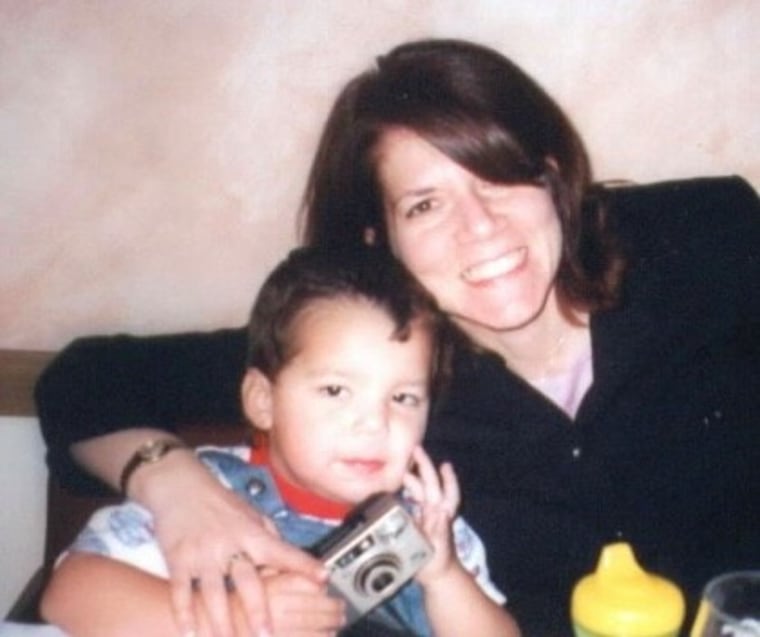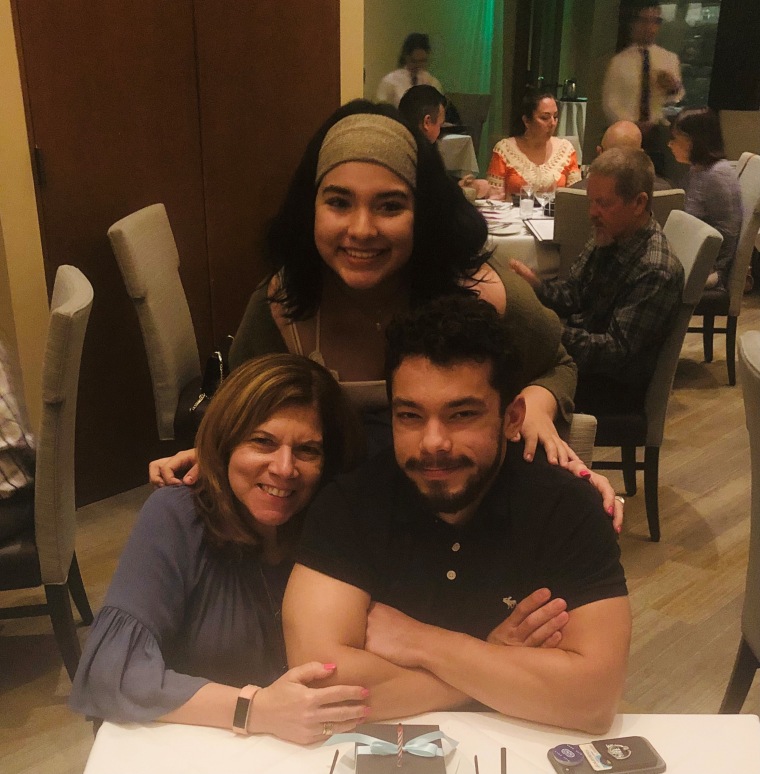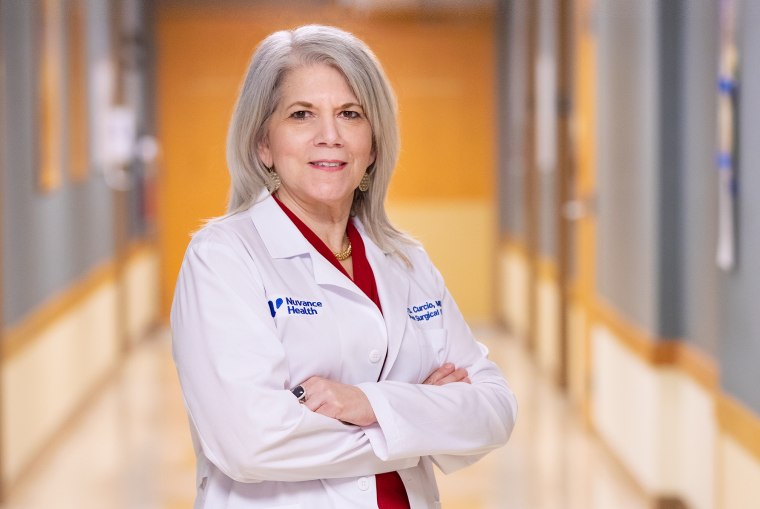It's been 21 years since Dr. Lisa Curcio was diagnosed with breast cancer, but the breast surgeon vividly remembers pumping breast milk for her infant son and noticing blood mixed into the bottles as she placed them in the refrigerator.
Curcio, who today is one of the leading breast surgeons at Nuvance Health, a hospital system servicing New York and Connecticut, said at first, she was in denial.

“(Seeing blood in my breast milk) was a distressing thing but I looked at my nipple and I could see it was a little raw and cracked, so I kind of thought maybe my son had opened up an area," Curcio told TODAY. "Initially I went into denial despite all of my training and I started looking on websites to see whether it could happen. I had myself convinced it was that, so I stopped breastfeeding on that side. But one day I took off my bra and I noticed there was a little bit of blood in my bra."
It was then that Curcio knew she had to seek medical treatment.
In most cases blood in breast milk can be due to a cracked nipple or mastitis, according to La Leche League International, a breastfeeding organization. But for Curcio, the blood was a sign of a serious health issue: She was diagnosed with early stage high-grade ductal carcinoma in situ (DCIS), a fast-growing form of breast cancer. She also had Paget's disease of the breast, a rare form of breast cancer that affects the nipple.
The Air Force lieutenant colonel had a double mastectomy to treat the cancer and today is cancer-free and working to help other patients with breast cancer survive and thrive beyond the disease.

"At first, I was in this denial mode of proving I was the same surgeon I was before my breast cancer diagnosis, but I think somewhere along the line I started to really think about why things happen and what good could come of something like this," said Curcio. "My breast cancer was an aggressive tap on my shoulder ... It has been so fulfilling to walk women through this experience that can be terrifying and frightening but also can be a place where you find strength on the back end of that."
Curcio said the best way to catch breast cancer early is to form a baseline of what's normal with your breasts.
"Do breast self-examinations and really know when something is new or different," she said. "Don’t ignore new symptoms. You can go into denial mode but I think you really have to follow your instincts and know when you need to have someone look at it and evaluate it further."

And, Curcio said it's important to remember breast cancer doesn't always present as a lump. In addition to bleeding from the nipple, the surgeon said a sudden difference in the size of one breast, skin rashes or redness, nipple inversion or clear nipple discharge are also symptoms worth addressing with your doctor.
The mom of two cautions to avoid excusing symptoms away and placating concerns with internet searches.
"There's no harm in going online," said Curcio, "but when you use the internet as a modality to not get medical advice, that's where it can be dangerous. You can justify or deny a lot of stuff if you go online ... But know that when you have a new symptom, you always should seek medical care."

